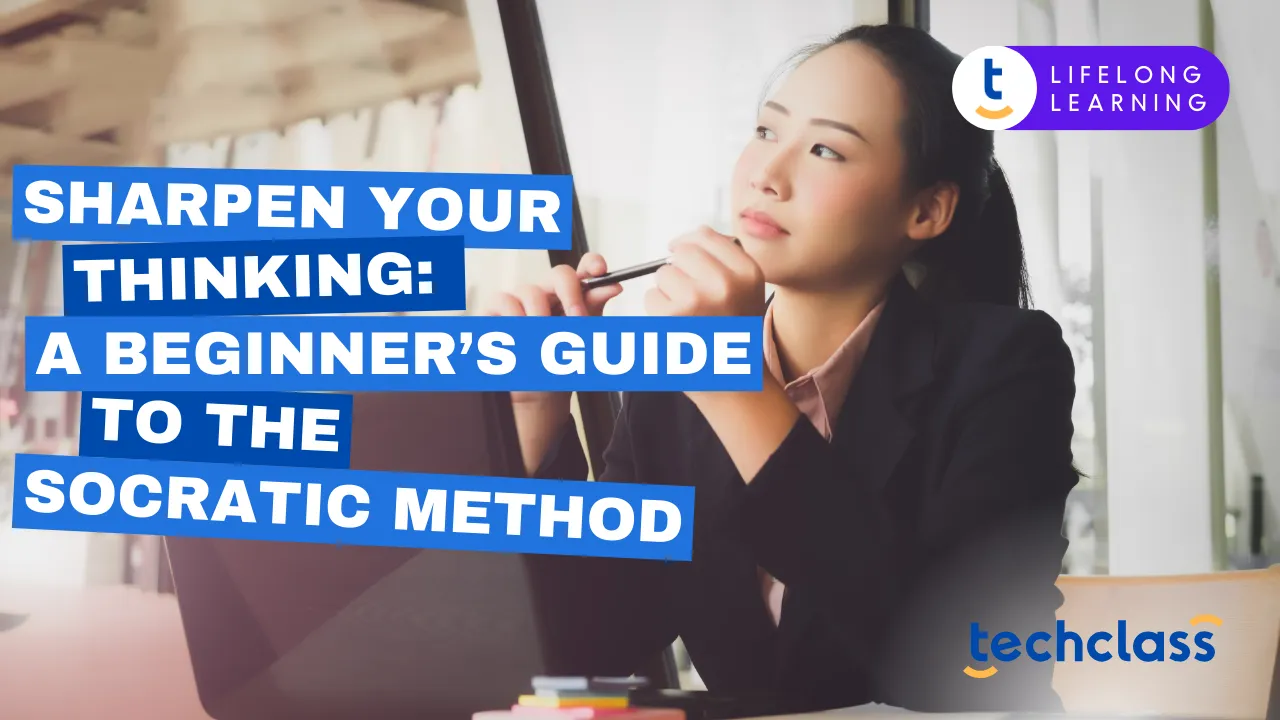
In between the rapid tempo of modern life, we’re constantly bombarded with a torrent of information, news updates, social media commentary, expert insights, and clashing perspectives all vying for our attention. Navigating this landscape requires more than just the ability to consume facts; it demands the ability to think critically, ask meaningful questions, and evaluate ideas with clarity and intention. In such an environment, independent thinking is no longer a luxury, it’s a vital skill for making sense of complexity, making informed decisions, and staying grounded in one’s values and reasoning.
For individuals who are deeply committed to personal and intellectual development, especially those on a continuous journey of learning, the Socratic Method provides a powerful and enduring framework to deepen understanding and challenge assumptions.
Originating from the teachings of the ancient Greek philosopher Socrates, the Socratic Method is a form of disciplined questioning aimed at exploring complex ideas, uncovering underlying assumptions, and stimulating critical thinking. Rather than providing direct answers, this method encourages individuals to engage in dialogue, asking and answering questions to illuminate ideas and beliefs.
This approach is not about winning arguments but about fostering a deeper understanding of the subject matter. By engaging in thoughtful inquiry, learners are prompted to reflect on their beliefs and the reasoning behind them, leading to greater self-awareness and intellectual humility.
People come into any learning experience with a rich tapestry of life experiences, professional backgrounds, personal values, and long-held beliefs. This diversity adds depth to the learning process and shapes how individuals engage with new ideas. The Socratic Method, rooted in questioning, dialogue, and self-exploration, resonates strongly with learners. It moves away from the traditional one-way transfer of information and instead fosters an evolving conversation driven by curiosity and personal relevance. One of its greatest strengths is that it encourages self-directed learning. Rather than relying on passive absorption of facts, it places the responsibility for learning in the hands of the individual. Learners are invited to lead the process, ask meaningful questions, and build understanding through active inquiry.
In addition, the Socratic Method builds upon existing knowledge, helping people connect new concepts to their lived experiences. This makes learning more engaging and improves retention, as learners internalize information that feels relevant and familiar. Just as importantly, it fosters critical reflection, the ability to question one’s own beliefs, consider alternative perspectives, and re-evaluate assumptions. This reflective process is essential for lifelong learning and personal growth. In a world that values adaptability and thoughtful decision-making, the Socratic Method offers learners a powerful and practical way to deepen their thinking and continue evolving intellectually.
To effectively employ the Socratic Method, it's helpful to understand the different types of questions that can guide inquiry:
Incorporating the Socratic Method into everyday life can enhance decision-making and problem-solving skills. Here's how you can apply it:
By consistently practicing this method, you can develop a habit of thoughtful inquiry, leading to more informed and reflective perspectives.
Despite its strengths, the Socratic Method comes with challenges. Deep questioning can sometimes trigger discomfort or defensiveness, especially when personal beliefs are examined. That’s why it’s important to approach discussions with empathy and respect. The method also requires time, thorough exploration isn’t always practical in fast-paced settings, so balancing depth with efficiency is key. Additionally, effective facilitation is essential. Guiding dialogue without dominating it takes practice, especially in asking open-ended questions and encouraging diverse voices. When these challenges are acknowledged and managed well, the method can remain both powerful and accessible.
The Socratic Method offers you a pathway to deeper understanding and personal growth. By embracing a mindset of inquiry and reflection, individuals can enhance their critical thinking skills, challenge their assumptions, and engage more meaningfully with the world around them. In the pursuit of lifelong learning, the art of asking thoughtful questions is as valuable as the answers they uncover.
Adopting the Socratic Method is a transformative step toward intellectual growth, yet fostering this level of critical thinking across an organization requires more than just individual intent. In a fast-paced business environment, finding the time for deep inquiry and consistent dialogue can be difficult to sustain without the right infrastructure to support it.
TechClass bridges this gap by providing a platform designed for active, self-directed learning. With our integrated AI Tutor, employees can engage in real-time questioning to deepen their understanding of complex topics whenever a question arises. By leveraging social learning features and interactive learning paths, TechClass helps you scale the principles of thoughtful inquiry, turning personal development into a collective strength that drives innovation and informed decision-making across your entire team.

.webp)
